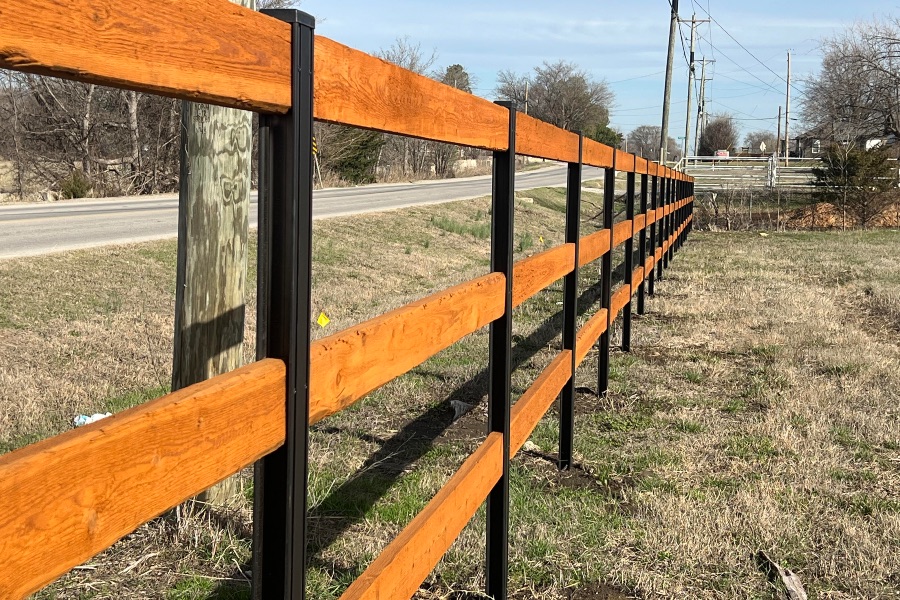All Categories
Featured

When thinking about mounting a fencing on your residential property, one of the most vital actions is to understand whether you require an authorization. The particular licenses required can differ depending on your location, the kind of fencing you plan to mount, and the height or placement of the fence.
Why You Need a Permit for a Fence Installation. The permit procedure assists regional authorities verify that your fence does not interfere with web traffic exposure, respect your building lines, or go against height constraints. Setting up a fence without an authorization can result in fines, elimination of the fence, or hold-ups in building and construction, so it's necessary to check whether an authorization is required before starting your project.
Types of Permits You May Need. There are a few typical kinds of licenses you could need for a fencing setup:
Building Permit. A building permit is one of the most common license required for fencing setups. This license ensures that the fence meets safety requirements and is built according to regional building ordinance. A structure permit is generally required if the fence surpasses a certain elevation (usually 6 feet), is constructed from specific products, or lies near a public sidewalk or roadway.
Zoning License. A zoning license might be needed to validate that your fencing adheres to local zoning laws. Zoning regulations can determine where a fence can be put on your building, how high it can be, and whether it is enabled in certain areas (such as along property lines or in front yards) Some towns have guidelines limiting the elevation of fencings in the front backyard to ensure visibility for pedestrians and drivers.

Setback Permit. You may need a setback license if you are developing a fencing near your property line or close to a road. A problem refers to the range a framework, including fencings, should be from the property line. Trouble regulations differ by place, and making sure that your fencing is positioned properly can avoid disputes with next-door neighbors and stay clear of infractions.
Property Owner Organization (HOA) Approval. You might require authorization from them in enhancement to local permits if you live in a neighborhood governed by a Homeowner's Organization (HOA) HOA policies commonly cover the kind of products, height, design, and shade of fencings. Even if your neighborhood federal government doesn't need an authorization, your HOA might still have certain standards that need to be followed.
Exactly How to Get a Fence License. To request a fence authorization, you'll need to call your local building department or preparation office. The application process typically entails submitting a form, paying a charge, and sending a site strategy of your home that reveals the recommended location of the fencing. You might likewise require to include information concerning the materials, elevation, and style of the fence.
In many cases, a local authorities might require to check your property before accepting the license. When the authorization is given, you will be accredited to wage your fence installation.
When Is an Authorization Not Required? In certain situations, a permit may not be needed. These scenarios can include:
Low Height Fences: In many areas, fences that are below a specific height (frequently 3 to 4 feet) may not require a permit, especially if they are put in the backyard or other non-visible locations.
Fencing Substitute: If you're replacing an existing fencing with the very same elevation and material, some areas might not require a brand-new authorization.
Non-Obtrusive Fencings: Short-lived or attractive fences, such as those utilized for gardening or landscaping objectives, might not need licenses as long as they are low and not irreversible.
Nonetheless, it is necessary to talk to your neighborhood zoning office or structure division, as laws can differ by territory.
Consequences of Not Acquiring a License. Failing to acquire the required authorizations can lead to considerable effects. These consist of fines, compelled elimination of the fencing, or also hold-ups in building. Furthermore, if your fencing doesn't fulfill neighborhood laws, you could deal with legal concerns with neighbors or regional authorities.

Verdict. By making sure that you adhere to regional laws and get the required permits, you can prevent pricey mistakes and make certain that your fencing is legally certified. Check with your regional structure division, HOA, and zoning workplace to establish what licenses are required for your particular fencing project.
Latest Posts
Which Furnishings Products Are Best for Toughness and Design?
Published Jan 20, 25
0 min read
Experience Quality Craftsmanship with Idaho Fence
Published Jan 20, 25
1 min read
Custom Bathroom Solutions by Bath Fitter
Published Jan 20, 25
0 min read